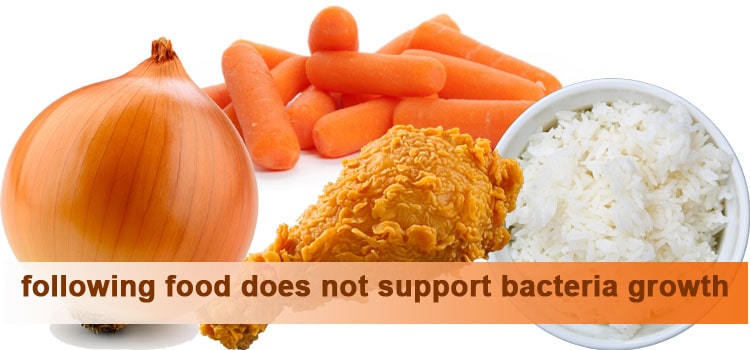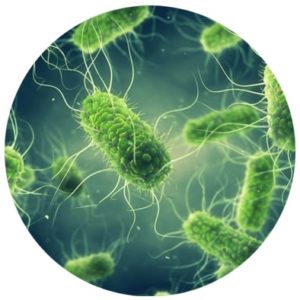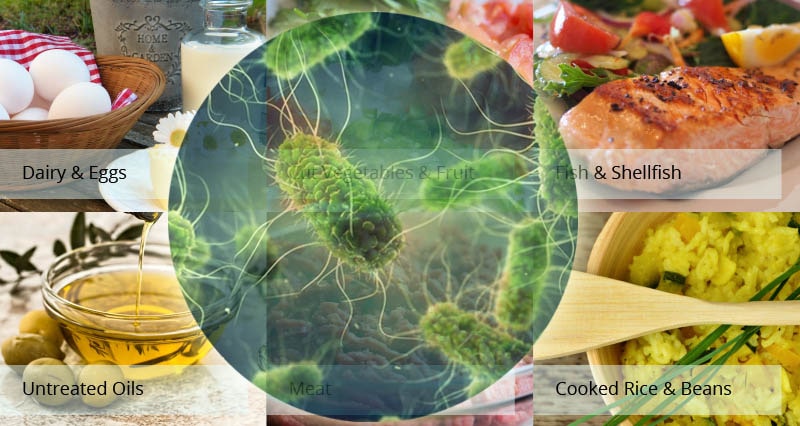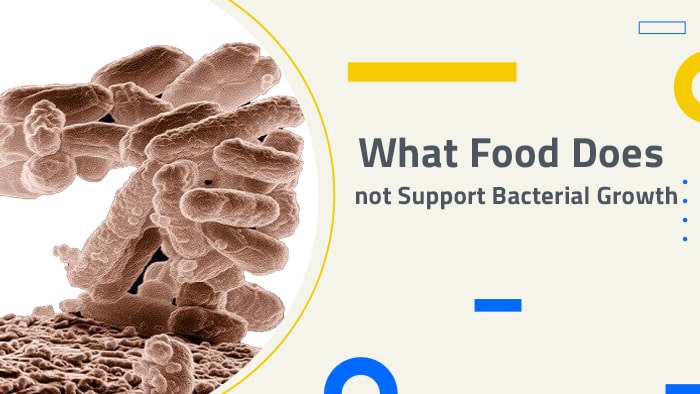Bacterial growth in food items is one of the most dangerous things that can happen. If you don’t know how to prevent food contamination, your life is at risk, trust me!
As we know that most of the common food items that we consume every day are vulnerable to germs. But what food does not support bacterial growth? Do they exist, or is it just a tall tale?
Well, some food items are quite safe from contamination. And it’s easier to handle those foods as they come with minimum maintenance.
Let’s get to know about those items now so you can have better food safety around your house.
Which of the following food does not support bacteria growth?

So, here is a quiz for you. Which of the following food does not support bacteria growth?
- Raw carrot
- Cooked rice
- Sautéed onions
- Fried chicken
If you picked raw carrots, you got the right answer! Cooked foods are usually a happy place for bacterial growth, to be honest!
Here I am listing some food items that do not support bacterial growth if we consume them.
Raw Vegetables and Fruits
Raw vegetables and fruits are less likely to be vulnerable to germs. But if you cook them, they can be contaminated quite easily.
Moreover, raw veggies are healthier than cooked ones as the cooking process tends to destroy most nutrients.
Just handle your vegetables and fruits with sanitized hands and utensils. And don’t forget them to refrigerate within two hours of cutting.
Canned Foods
As canned foods are properly sealed, they are safe from contamination. The elimination of air from the packaging does the trick.
But always check the expiry date before you buy canned goods. It will help you to be in the safe zone.
Dry foods
People in some countries store dry foods for crisis as they do not get spoiled so easily. Dry foods don’t have any water, so they are not vulnerable to bacterial growth.
Frozen foods
Frozen foods are also a bacteria-free item because of the freezing process. But do not thaw your frozen foods on the countertop. Use a microwave or a cold pot of water to prevent contamination.
Dried Spices
If you store your spices in dry and clean containers, there will be no bacterial development.
Moreover, oil-based foods like pickles are also a germ-free zone.
What foods support bacterial growth?
There are so many food items that we consume daily. Let me give you an elaborate list so you can take proper safety measures while handling them.
Poultry
Raw meats are at high risk of getting contaminated as Salmonella and Campylobacter are two of the most common contaminants found on them. These germs tend to survive till you cook these items properly at the correct temperature.
If you consume these foods that contain these microorganisms, a little amount will become deadly for you.
Raw eggs
Always cook your eggs with proper heat to avoid pathogen contamination.
Fish and Seafood
Fishes should be handled with maximum safety from the moment they are caught. If they are not stored properly, they can become a great zone for a bacterial colony.
Moreover, when it is about getting food poisoning from seafood, bacteria isn’t the only reason. Sometimes seafood contains toxins that can make you ill. But bacterial escalation is quite common in seafood, so you must handle them with caution.
Dairy products and Raw milk
Raw milk is the one that hasn’t been heated to get rid of bacteria. So it is not wise to intake raw milk or any unpasteurized dairy products.
Food items like soft cheeses are at high-risk of getting contaminated by bacteria. So doctors forbid pregnant women from consuming this type of food.
Sprouts
As sprouts are grown in a warm and moist environment, they are immensely vulnerable to germs like E. coli and Salmonella. And most people eat them raw, which can be hazardous for humans with a weak immune system.
So always cook your sprouts to lower the chances of contamination.
Rice
Rice is one of the staple foods among the populace around the world. But Bacillus cereus is a contaminant that lives in uncooked rice. If you cook it, you can eliminate this microorganism properly.
However, cooked rice is one of the best breeding grounds for bacteria. So you need to store your cooked rice with the highest security to avoid foodborne illness.
How can you control the growth of bacteria in food?

control the growth of bacteria in food
There are some safety measurements that you can take to prevent bacterial contamination on your food items. Let me enlighten you with those steps now.
- Wash your hands with warm water and soap for at least 20 seconds. Do the same after handling raw items.
- Keep your countertop sanitized always. You can use antibacterial spray or hot water for that.
- Wash your dishcloths religiously every day.
- Store your raw items separately, even when you are shopping.
- Put your food items in the fridge within two hours of washing or cutting them.
- Keep your leftovers in sealed containers or bags.
- Store raw foods on the bottom shelf of the fridge. In this way, no juices will drip from them onto other food items.
- Cook your food properly and use a kitchen thermometer to get the accurate temperature.
- Make sure your fridge is freezing food at the right temperature, which is 35-40 degrees Fahrenheit.
- Always consume your food before the recommended expiry date.
These rules aren’t any rocket science, just some simple everyday habits that you can take on. The practice of this rule will ensure better food safety management for you.
Does cooked rice help bacteria grow?
Cooked rice is one of the most bacteria-friendly food items out there. The best way to prevent contamination is to eat them immediately because reheated rice causes more trouble than usual.
Uncooked rice contains the spores of Bacillus cereus, and they can survive if you don’t cook the rice at an accurate temperature. And if you leave that rice openly, it will become a bacteria breeding colony that will cause severe food poisoning.
So always cook your rice properly to avoid unpleasant foodborne diseases.
You can read about kitchen faucets reviews from https://intraadvice.com/kitchen-faucets-under-200/.
Final verdict:
So, what food does not support bacterial growth? Hopefully, you’ve got your answers to this query and all the other information you needed.
Now you can take appropriate measures to prevent unwanted bacterial development in your food and lead a healthy lifestyle.
We talk about more food
Which Statement best Describes a Lifestyle with Healthy Eating Habits?, Food Contamination Caused by Pathogens can be Controlled by , What is The Best Way to Prevent Poor Food Safety , How Can a Food Handler Identify Pathogens, How do you identify a pathogen in Food?, What bacteria can survive boiling water

